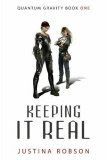The Future of Manned Spaceflight
SciFiDimensions has just posted a virtual panel discussion on The Future of Manned Spaceflight. Moderated John C. Snider asks noted panelists Geoffrey A. Landis (science fiction author and actual NASA scientiset), M.M. Buckner (novelist and winner of the 2006 PKD award) and our own Adam Roberts (author of Gradisil and professor of 19th Century English Literature) about NASA’s current Constellation Program, “a comprehensive package of development aimed at regaining the ability to put astronauts into space after the Shuttle is retired.”
 Please read the whole discussion, but here’s a clip from Adam Roberts to whet your appetite:
Please read the whole discussion, but here’s a clip from Adam Roberts to whet your appetite:
“The problem isn’t that space exploration isn’t a noble, or a necessary, human aim. It clearly is. The problem is that enormous boondoggle governmental programs to put people into space are exactly the wrong way to advance that aim. What we need is a genuinely popular and ground-up move into space, not a top down one; something that taps into the groundswell of popular fascination with space travel. The technologies NASA are using to put people into space can be thought of this way: at the time of Apollo it cost as much to put a man in orbit as that man’s weight in gold. Chemical propulsion is the same technology, and the costs haven’t come down very far. Now, the USA would never have come about if it had cost that much to ship colonists over from Europe. There needs to be serious investigation of: cheaper models of space elevators; next-generation high altitude zeppelins as launch pads; re-jigged and less polluting Spaceship Orion nuclear-propulsion projects, boosting spaceplanes with electromagnetic effects from the earth’s magnetosphere; and anything else that people can think of.”
The Future of Manned Spaceflight Read More »













